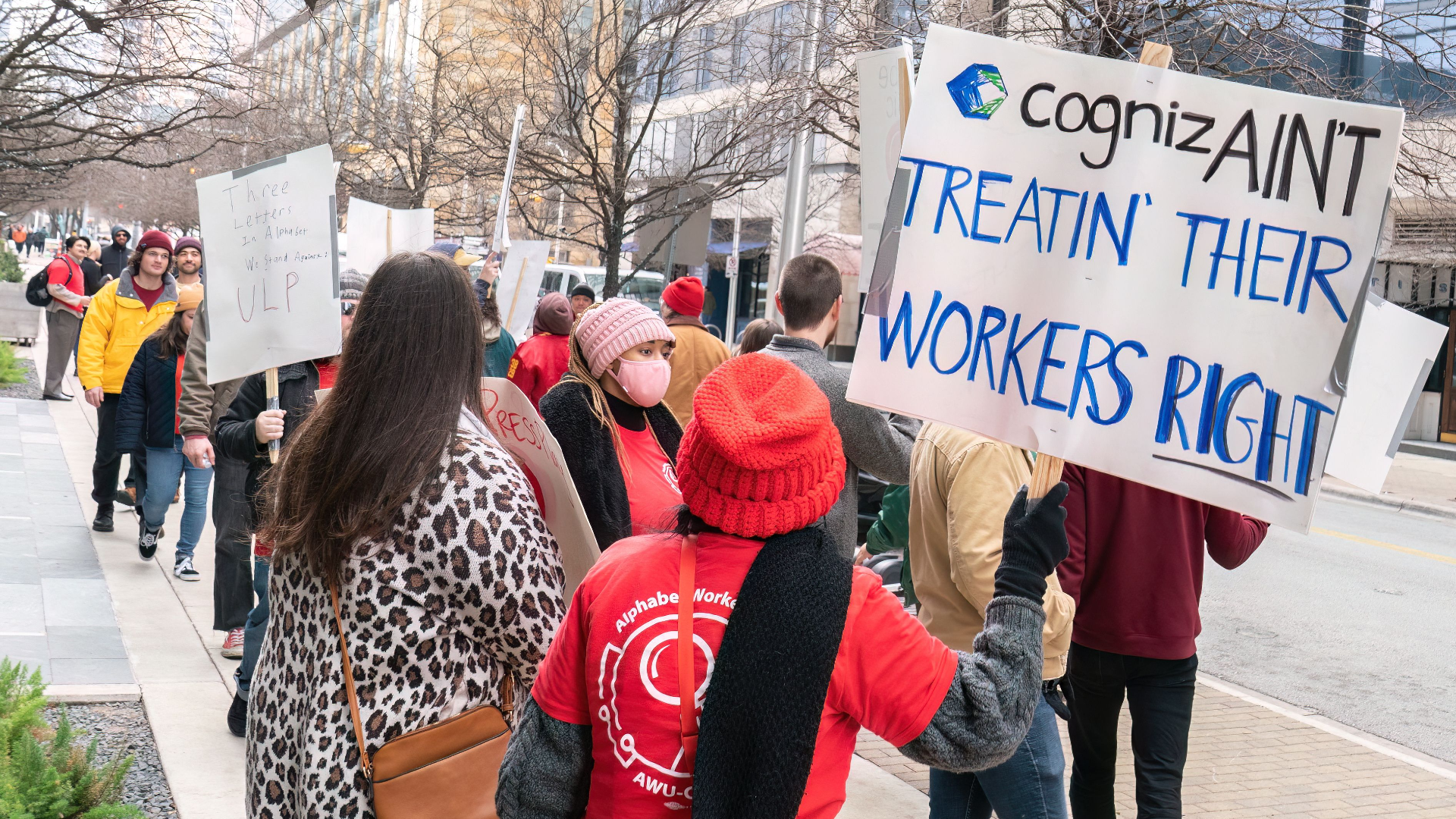Google Contractor Fires Back After Casar, Sanders Make Union-Busting Accusations

A company that does work for Google is firing back against claims of union-busting and worker retaliation after being called out by members of Congress.
Last month, TYT reported that Rep. Greg Casar (D-TX) and Sen. Bernie Sanders (I-VT) sent a letter to Google CEO Sundar Pichai expressing their “serious concern regarding alleged retaliation taken against YouTube Music workers who are exercising their legal right to organize.”
The letter alleges that Google contractor, Cognizant, mandated an in-person work policy for remote workers three weeks after they filed a petition with the National Labor Relations Board (NLRB) to unionize last October. According to the letter, the mandate required workers to report to work at the company’s Austin, TX office on February 6.
In an email response, Cognizant told TYT, ”Unfortunately, you are being misled here and there is no truth to this rhetoric.”
While it’s unclear whether Cognizant’s Chief Communications Officer Jeff DeMarrais was referring to rhetoric from Casar and Sanders or the 58 YouTube Music workers who filed to join Alphabet Workers’ Union (AWU)-CWA, Cognizant’s official statement says that it’s “disappointing that some of our associates have chosen to strike over a return to office policy that Cognizant leadership has communicated to them repeatedly since December 2021.”
In its statement, Cognizant said that “[a]ssociates working on this project accepted their employment with the understanding that they were accepting in-office positions, and that the team would work together at a physical location based in Austin. Cognizant also wants to make clear that individuals who want to pursue alternate jobs with Cognizant – where they may be able to work from a particular location or remotely – have the option to do so as part of a program we offer to all Cognizant employees.”
The statement also clarifies that Cognizant is the “sole employer of these employees, not Google or YouTube.” DeMarrias also told TYT that “protesters have issued death threats against other Cognizant employees who chose to go to the office” and attached an Austin Police report which characterized an incident as a “terroristic threat.”
According to YouTube Music workers, Cognizant’s December 2021 email was not a return-to-office policy for all workers and that the company did not communicate such a mandate until after the contracted YouTube Music workers filed their union election.
In a statement to TYT, Katie Marschner who is a Cognizant contractor at YouTube Music and AWU-CWA member, said that workers were initially told that Cognizant would honor its commitment to diversity and inclusion and Environmental, Social, and Governance (ESG) values by ensuring greater work-life balance for workers who are the primary caretakers in their family and decreasing the carbon footprint caused by commuting.
Marschner says “that flexibility is being denied to us now” and that workers completed a survey to equip Cognizant with “the data necessary to push back on Google’s stated RTO (return-to-office) expectations.”
“[M]any of us were hired off of a job posting that did not mention any RTO expectations, but instead listed the job as remote, Marschner wrote in her statement. “Regardless, we wish Cognizant management would stop trying to discredit workers and instead focus on the real threat—the Return to Office mandate. Cognizant, Google, and YouTube must end their retaliatory RTO mandate and allow workers to maintain our standard work-from-home working conditions until after our union election.”
Marschner’s statement did not address claims of threatening behavior against Cognizant employees.
In the workers’ complaint filed in January with the NLRB against Google and Cognizant as joint employers, and obtained by TYT, workers allege that within three months of their union petition, Google and Cognizant began to outsource work to India “to chill the unionizing effort”.
The complaint also claims that the “employers” changed their workplace policies and enforcement across the boardin response to organizing efforts and communicated to contractors that failure to comply with the RTO mandate would “be treated as ‘job abandonment’ and a ‘voluntary termination,’” among other claims.
Neither Casar nor Sanders have responded to Cognizant’s statement. But in an interview with TYT last month, Casar said that dozens of the workers seeking to join the AWU are also touring musicians, which would make in-person work at a set location “an impossibility.”
Casar is pushing for the passage of the Protecting the Right to Organize (PRO) Act, which would expand organizing and collective bargaining rights for workers. But that likely won’t happen unless Democrats regain control of the House in 2024.
“We’ve got to properly fund the NLRB. We've got to make it easier for when a majority of workers want a union, to just be able to have the union,” said Casar who also wants to make it easier for workers to land union contracts in the event that companies refuse to negotiate.
At this time, neither Casar nor Sanders have said if they’ve heard back from representatives at Google or Cognizant.
TYT Washington Correspondent Candice Cole was previously a correspondent and senior White House producer for the Black News Channel and has worked at a number of local news outlets. You can find her on Twitter @CandiceColeNews.
